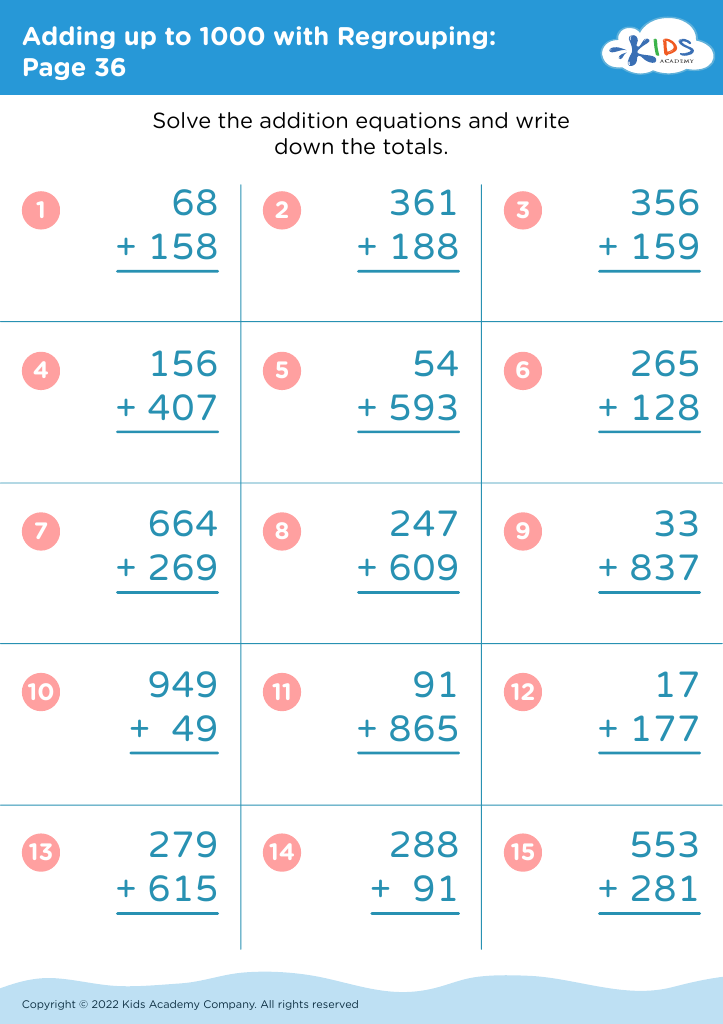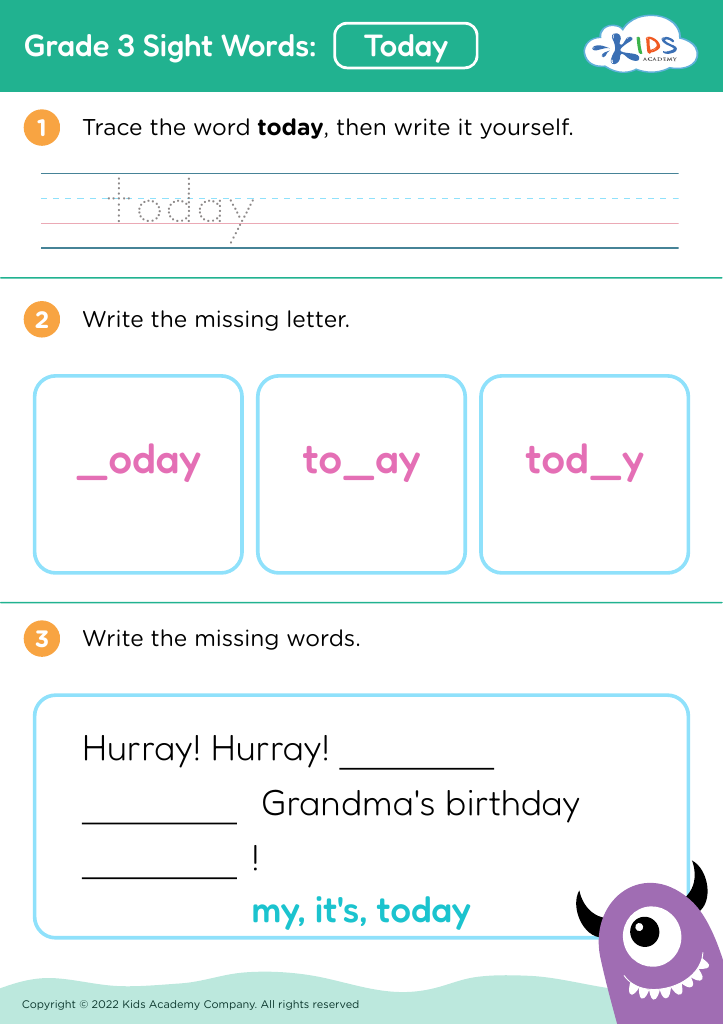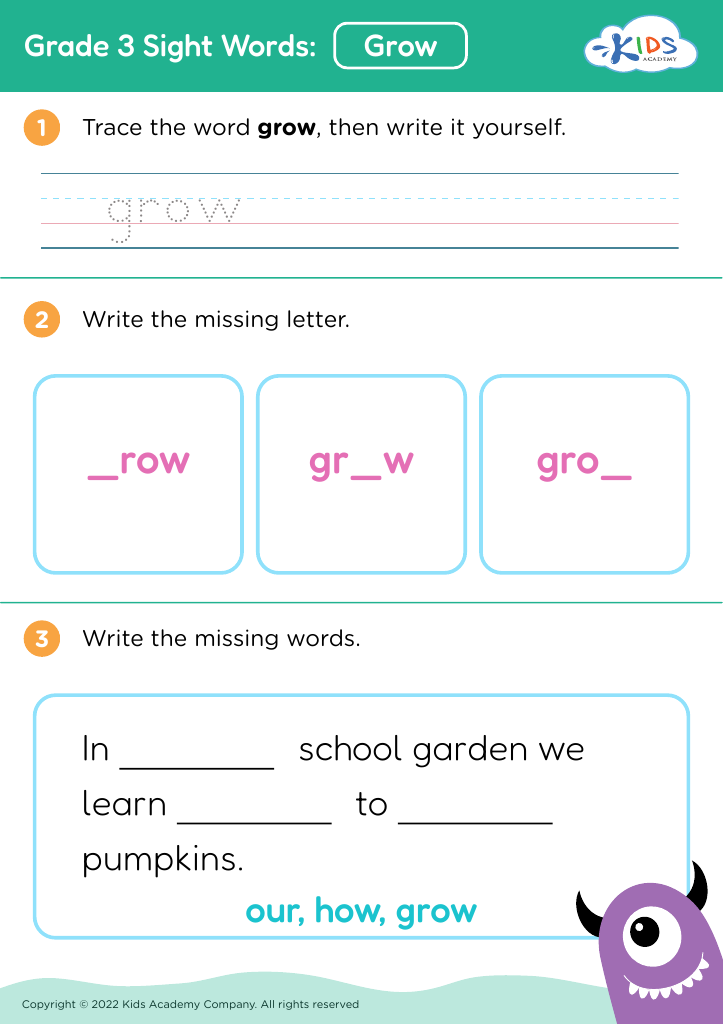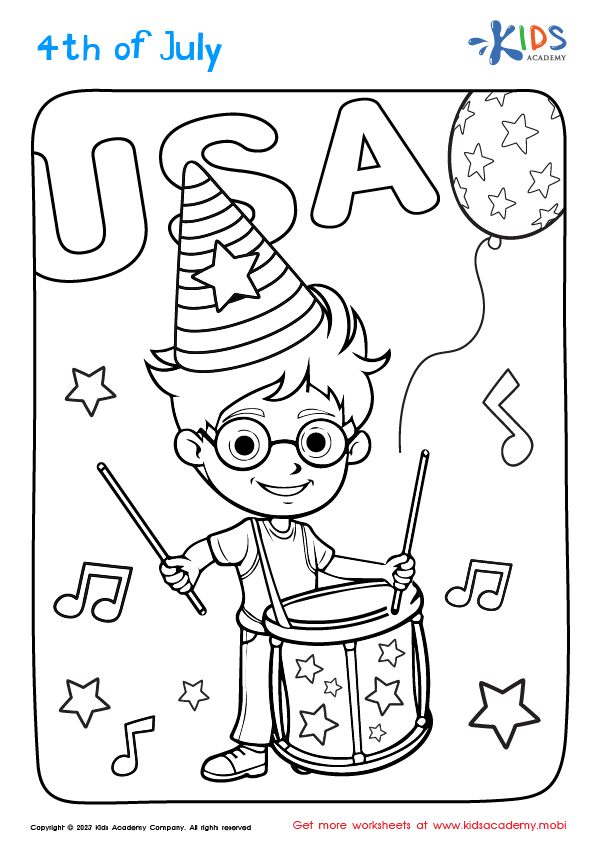Vocabulary Building Worksheets for Ages 5-9 - Page 4
83 filtered results
-
From - To
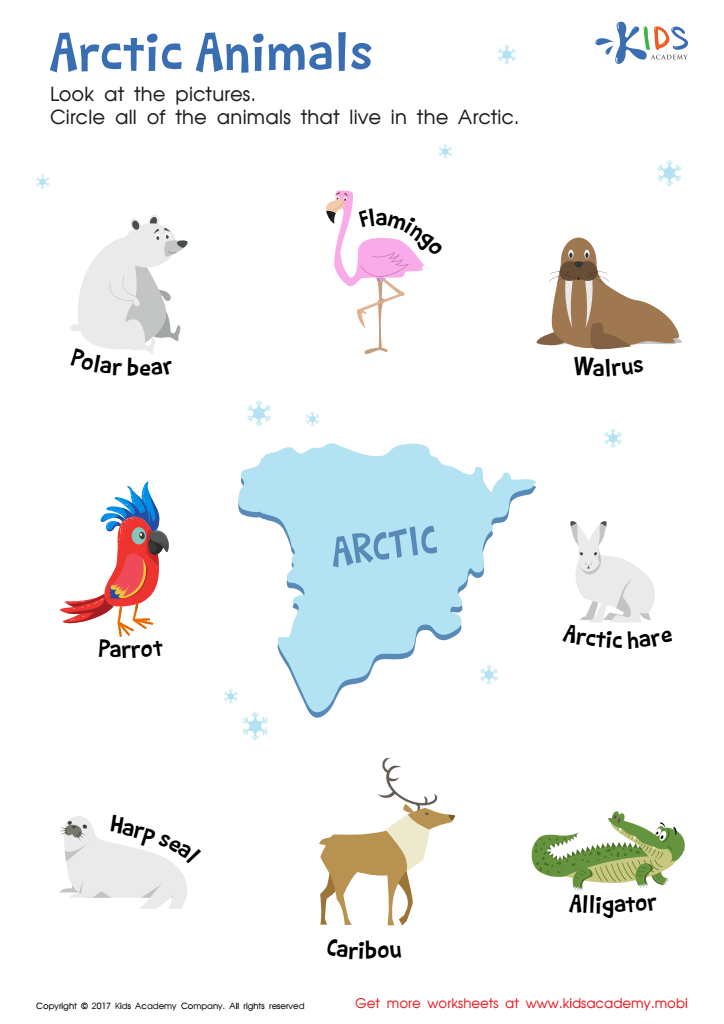

Arctic Animals Worksheet


Words with sound p Reading Worksheet
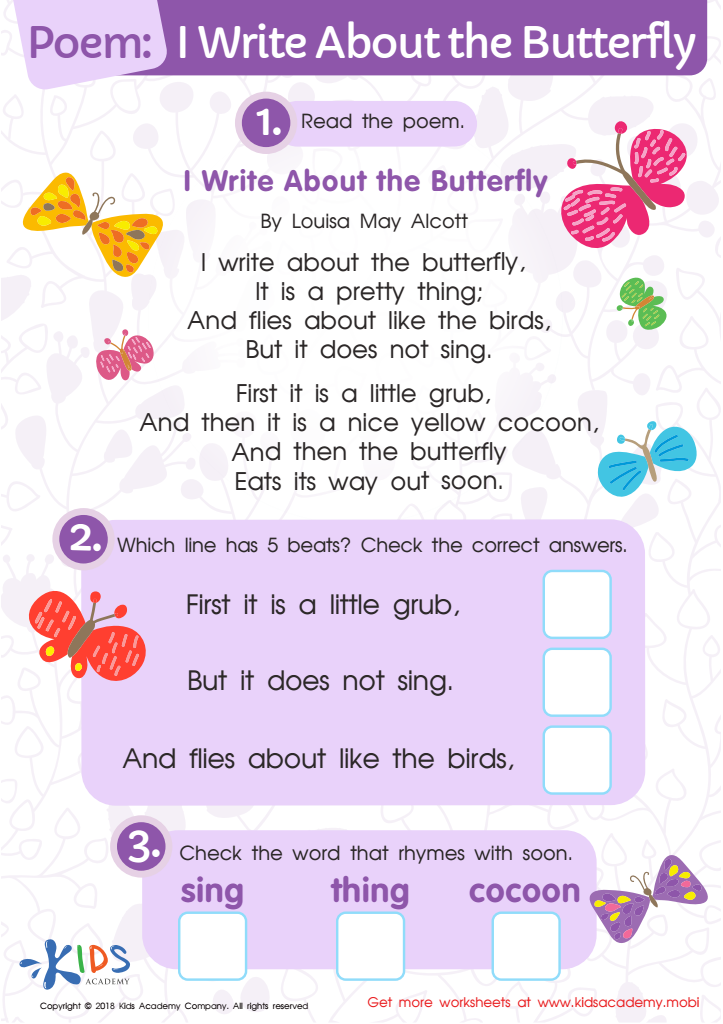

Poem: I Write About The Butterfly Worksheet
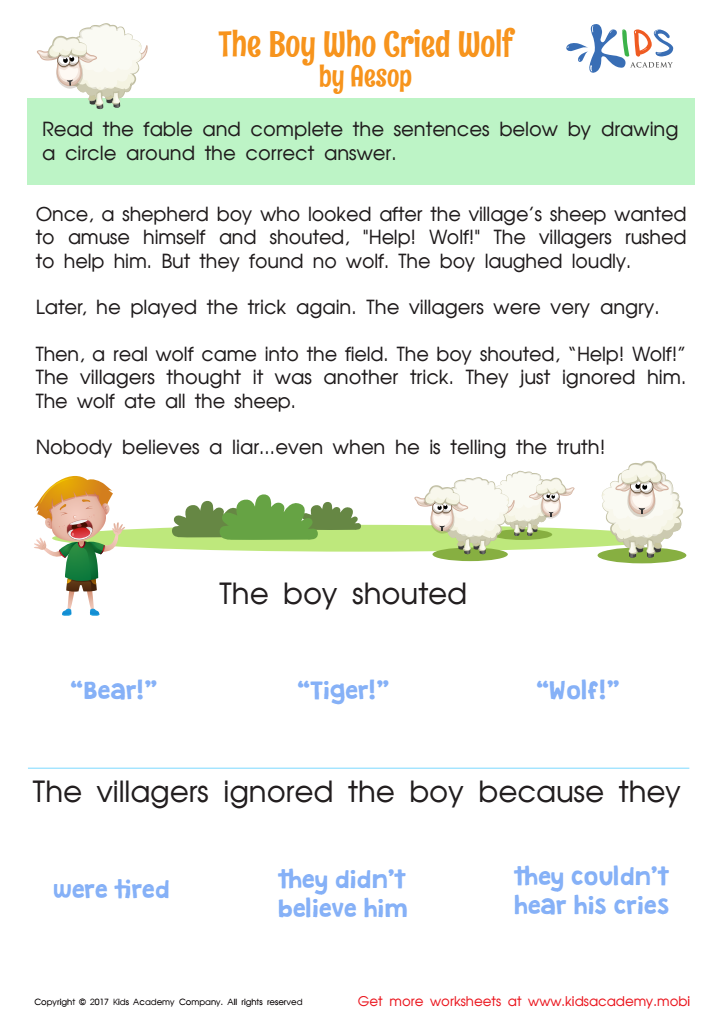

The Boy Who Cried Wolf Worksheet
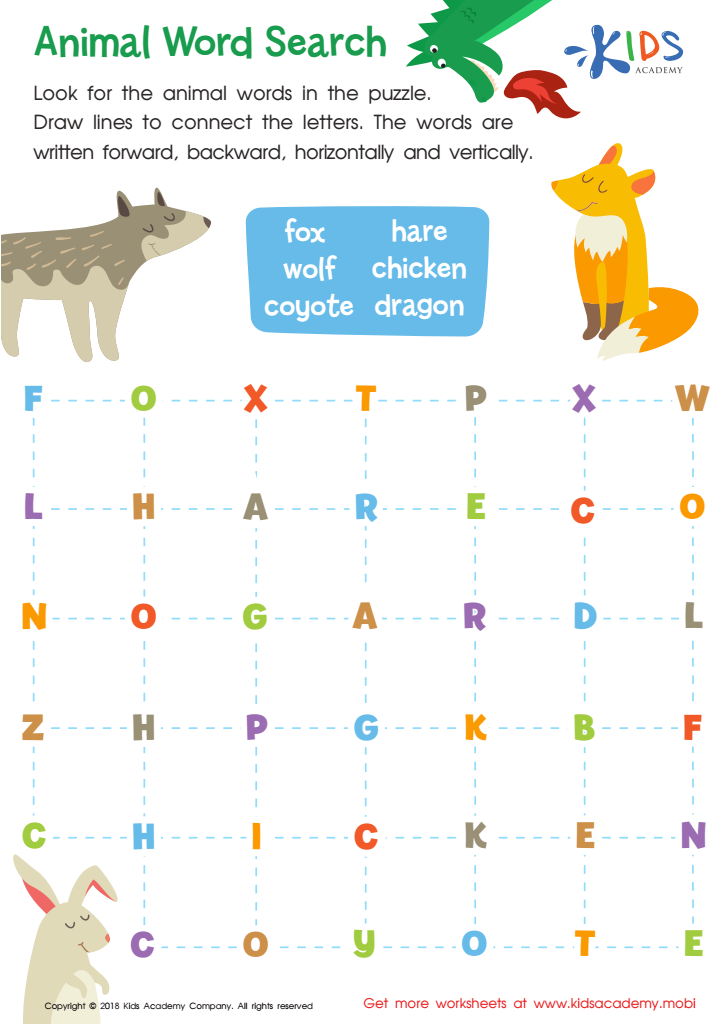

Animal Word Search Worksheet
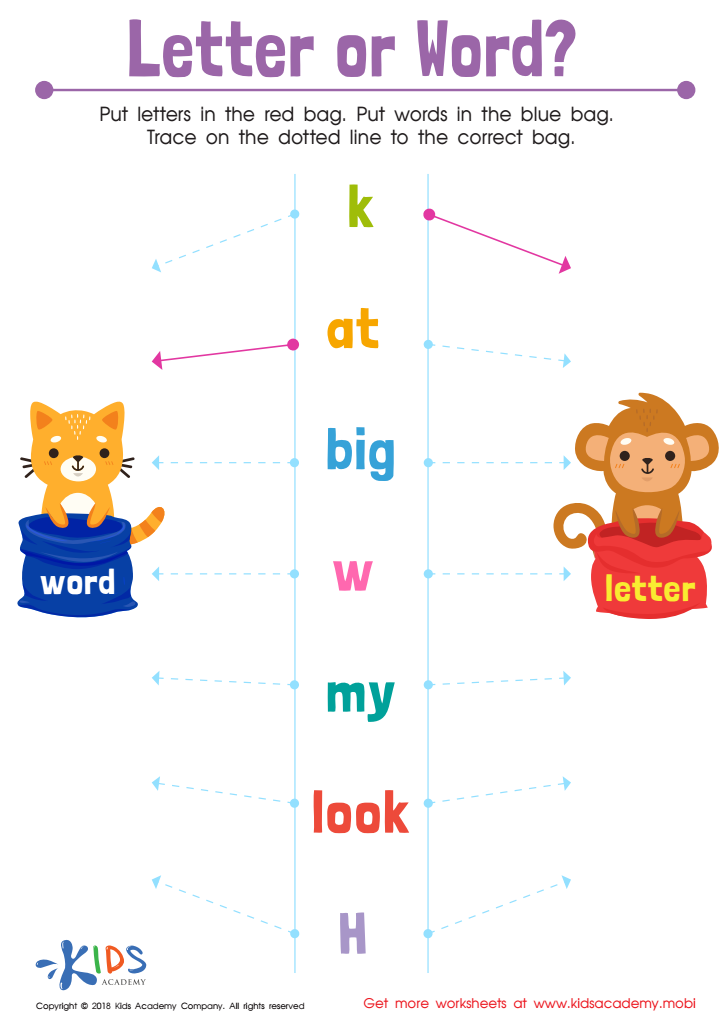

Letter or Word? Worksheet
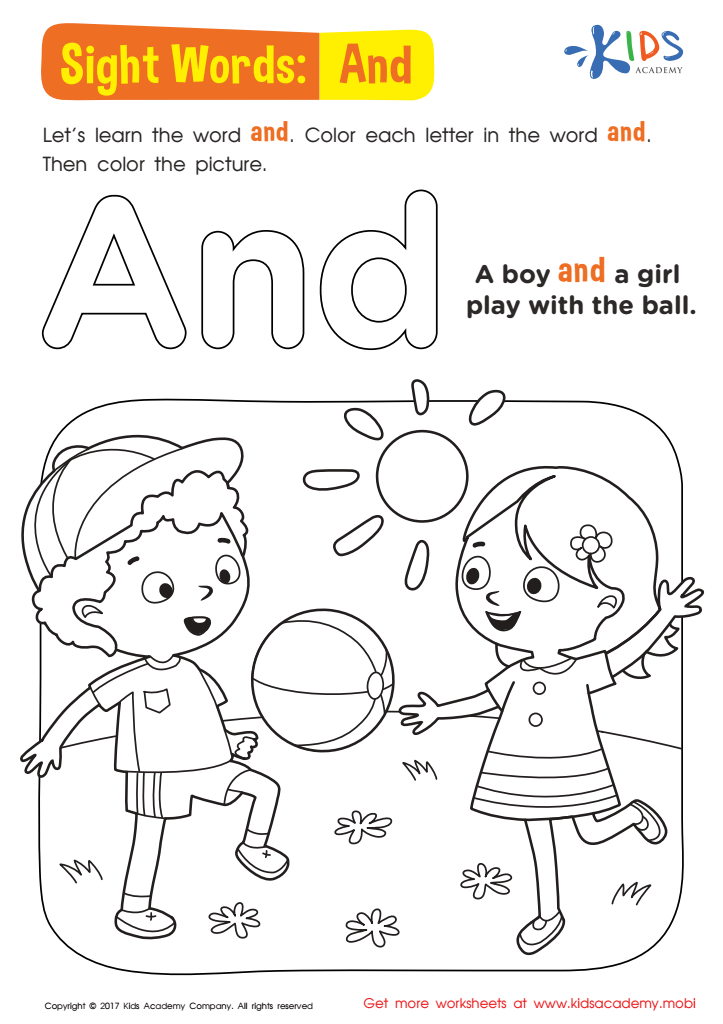

And Worksheet Sight Words Worksheet
Vocabulary building during ages 5-9 is a critical aspect of a child’s development that parents and teachers should prioritize. At this age, children are in a prime phase of language acquisition, which lays the foundation for their future communication skills. A robust vocabulary enhances reading comprehension and allows children to express their thoughts and feelings more clearly and accurately. This leads to better academic performance across subjects, as most learning depends on reading and understanding instructions, stories, and informational texts.
Moreover, a rich vocabulary facilitates social interactions. Children with a broader range of words can engage more effectively in conversations, express their needs and emotions, and build relationships. This boosts their confidence and social-emotional development.
Cognitively, vocabulary building enhances critical thinking and problem-solving skills. Understanding more concepts helps children think in more complex and abstract ways. For example, learning synonyms and antonyms expands their ability to understand context and nuance in language.
Parents and teachers play a crucial role by engaging in conversations, reading aloud, introducing new words, and providing diverse experiences that introduce varied vocabulary. Games, books, and daily interactions all offer opportunities for vocabulary enrichment. Ultimately, prioritizing vocabulary during these formative years sets the stage for lifelong learning and effective communication.
 Assign to My Students
Assign to My Students

